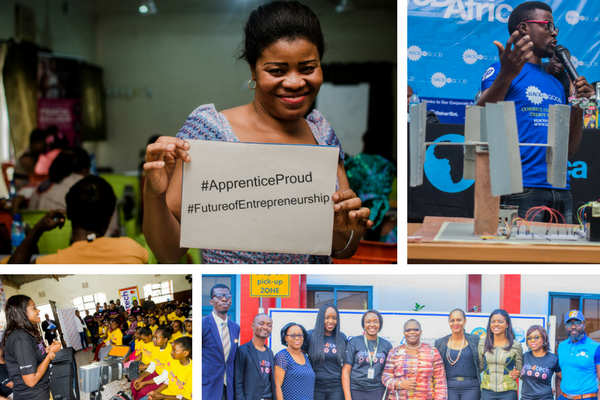

2017 was a transformative year for Youth for Technology Foundation (YTF) and the pursuit of our mission to create enriched learning communities where appropriate technology affords opportunities for even the most under-served.
Through the year, I had numerous opportunities to meet our students and our global teams, listening closely to their experiences and the impact our programs are having on their lives. Together, we are sharing the YTF story.
Through help from partners and supporters like you, we were able to deeply engage, motivate, and challenge even more of our students to learn and achieve their highest potential. Together, we’re empowering these young minds to become the powerful problem solvers and leaders that the world needs. Thank you for your continued financial support and for working alongside us on this journey. You, yes you – made our work worthwhile.
I want to also thank the incredible staff at YTF. Our people have devoted their time, talent and energy to making YTF what it is today. The YTF team members are like family, every single team member is here because first and foremost they genuinely believe in our mission and day in day out work tirelessly to change lives and share our story of impact to show why what we do matters. Thank you for your passion in 2017 and I am looking forward to serving alongside you this year.
A few weeks ago, we proudly unveiled our new website (take a look around!). It’s been one worth waiting for as our message stands out like never before, showcasing what we do, why it matters and how we execute on our mission. We are all about technology for inspiration. Everything we do at YTF is built on and centered about the use of technology, in the education and entrepreneurship corridors, to inspire youth and women. This is our DNA.
Here is how we rocked in 2017 as we look forward to ringing in even more impact in 2018.
Future-Proofing Our Youth
We invest in young people because they are assets. For them to drive sustainable economies, they must have the right skills to transition into the world of work or to create jobs themselves. By 2020, over 60 percent of the new jobs created will require skills that less than 20 percent of the workforce currently possesses.
At the World Economic Forum Africa meeting last May in Durban, South Africa, I gave a lightening talk on “Equipping Youth with Digital Knowledge and Skills for Employment.” I closed by posing a key question to the audience: How can we prepare youth with skills for jobs that don’t exist today? Check out the video here and take a moment to share your thoughts in the comments section.
Across the board, we continued to invest in our education-related programming by investing in our flagship program, YTF Academy. This program teaches youth digital fluency and ICT literacy skills to enter the workforce and remain competitive in a world that is increasingly digital and globally connected. We also supported youth, women and girls in innovation corridors through programs like 3D Africa and 3D Printing Academy for Girls, Women Entrepreneurs and Mobile Value Added Services and partner programs like Girls4Tech.
I recently checked in with one of our 3D Africa students, Emmanuel. When Emmanuel first started learning human centered design (HCD) and 3D printing at YTF, it was his first practical foray into the world of additive manufacturing. I learned he is now working on designing robotic arms for the distillery industry. While that’s a little different from what we taught him to do, it’s exactly the adaptable skills application we want to see in our young people. This is fulfilling our mission of “teaching young people to learn,” which is especially critical in a world where new disruptive technologies are emerging everyday – increasing productivity, improving lives, and reshaping our world.
We are especially proud of the progress we have made in our U.S. programming, 3D Printing Academy for Girls – made possible with committed partners working alongside us. In Kentucky, we launched the program in West Louisville where student participation in STEM fields is lower than anywhere else in the country. Over 80 percent of youth in West Louisville live in poverty.
In one of the cohorts early this year, I asked eighth grade student Kenzie what college she was considering. She first looked at me with a blank expression on her face, looked down and up again and said, “I am not sure I will get to ninth grade, and you are asking me about college.”
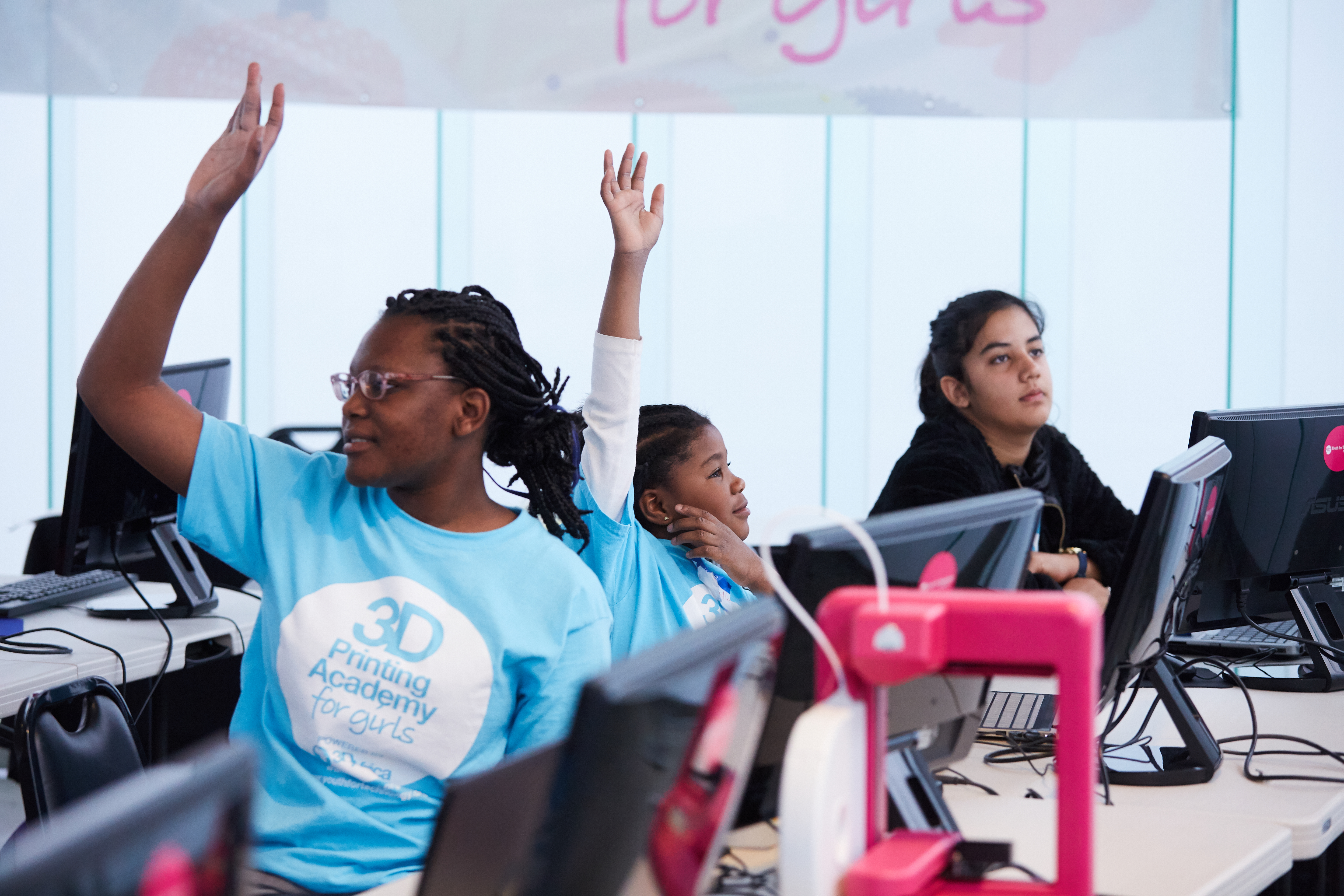
Twenty-five percent of adults in West Louisville have not even completed high school and only 12 percent have a bachelor’s degree or higher. As a parent’s educational level is a significant predictor of whether their child will graduate from high school and attend college, our work in West Louisville, especially for girls, is necessary.
In partnership with GE Haier, MakerBot, Best Buy Foundation, PPG Foundation, Lexmark, 3D Systems, and Society for Women Engineers (SWE), among others, we trained over 150 girls as part of the program, inspiring them to pursue STEM careers. Here is a cool write up from MakerBot on why this program is important and a short video of what our girls learned during 3D Printing Academy for Girls.
Supporting a Maker Movement of Young Innovators
In July, we held our annual HackforGood hackathon in Nigeria. Thirty undergraduate students from universities across Nigeria convened at the Chukwuemeka Odumegwu Ojukwu University (COOU) to develop technology prototypes that address needs in their community. Some examples included an eco-farm monitor, a sensing device that monitors real-time temperature and humidity transmitting data to farmers via SMS or voice, a hybrid power plant that uses solar and wind turbines, and other exciting innovations.
Rukeme, a recent university graduate, was recognized as “best team player” by her peers during the hackathon. A mathematics major in school, she was the only female on her team, Team TechKers, which also included three electrical engineers and one geologist. I was drawn to Rukeme for a variety of reasons. I noticed how she was always very active and worked very closely with her team. I also observed how she navigated a very stressful situation after a soldering error, realizing her team’s innovation would not come to realization due to limited resources.
Quickly, Rukeme led her team to pivot and came up with an alternative idea to design a hybrid solar wind power generator – a wind turbine with solar panels. She applied her background knowledge of physics and math in determining the mechanical efficiency, input and output voltage, the motor speed, and torque to ensure functionality. Despite facing an unexpected challenge, Team TechKers was able to pull through to win third place.
Watch this short video capturing the HackforGood 2017 innovations and be inspired. The winning team, team Hack-botics, developed a cost effective robotic arm manipulator that can be used in a variety of industries. We are incredibly grateful to key partners, especially HP, Merck, MakerBot, Autodesk and Women in 3D Printing, for partnering with us to make this a reality. Grateful also for our international panel of judges from Munich Business School, New York City College of Technology, Google, CDW, Imo State University, Federal University of Technology Owerri, University of Lagos and Autodesk.
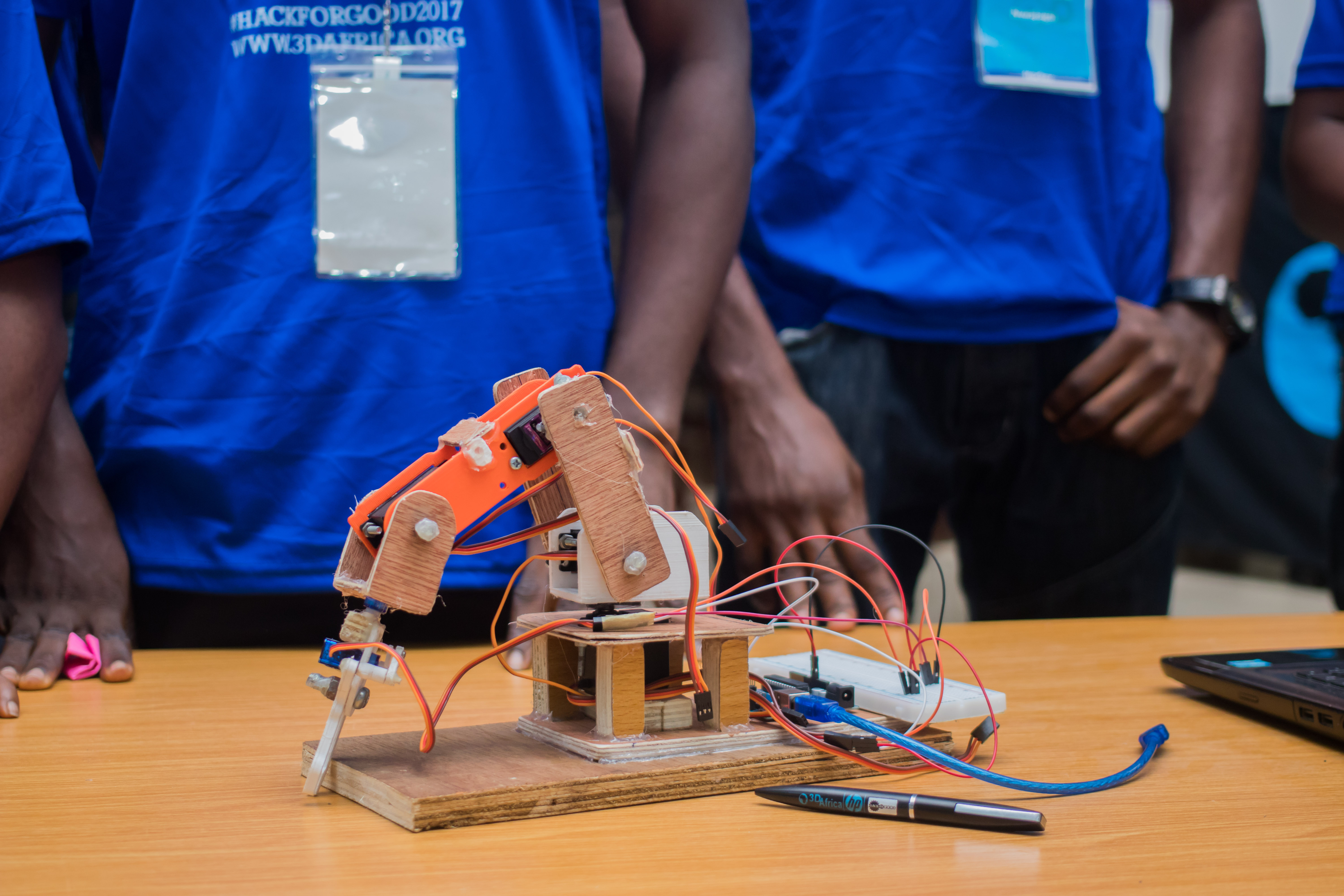
Building on that momentum, some of our teams participated in OpenMic Africa, a platform showcasing the work of youth entrepreneurs in Africa. The YTF student-led team, Road Accident Alert (RAA), took home the winning prize for their prototype, a road safety device that detects car accidents and informs relevant agencies of the accident location. We were so very proud of the work they put into this, and thankful for the partnership between MasterCard Foundation and the Legatum Center at the Massachusetts Institute of Technology (MIT) to create OpenMic Africa.
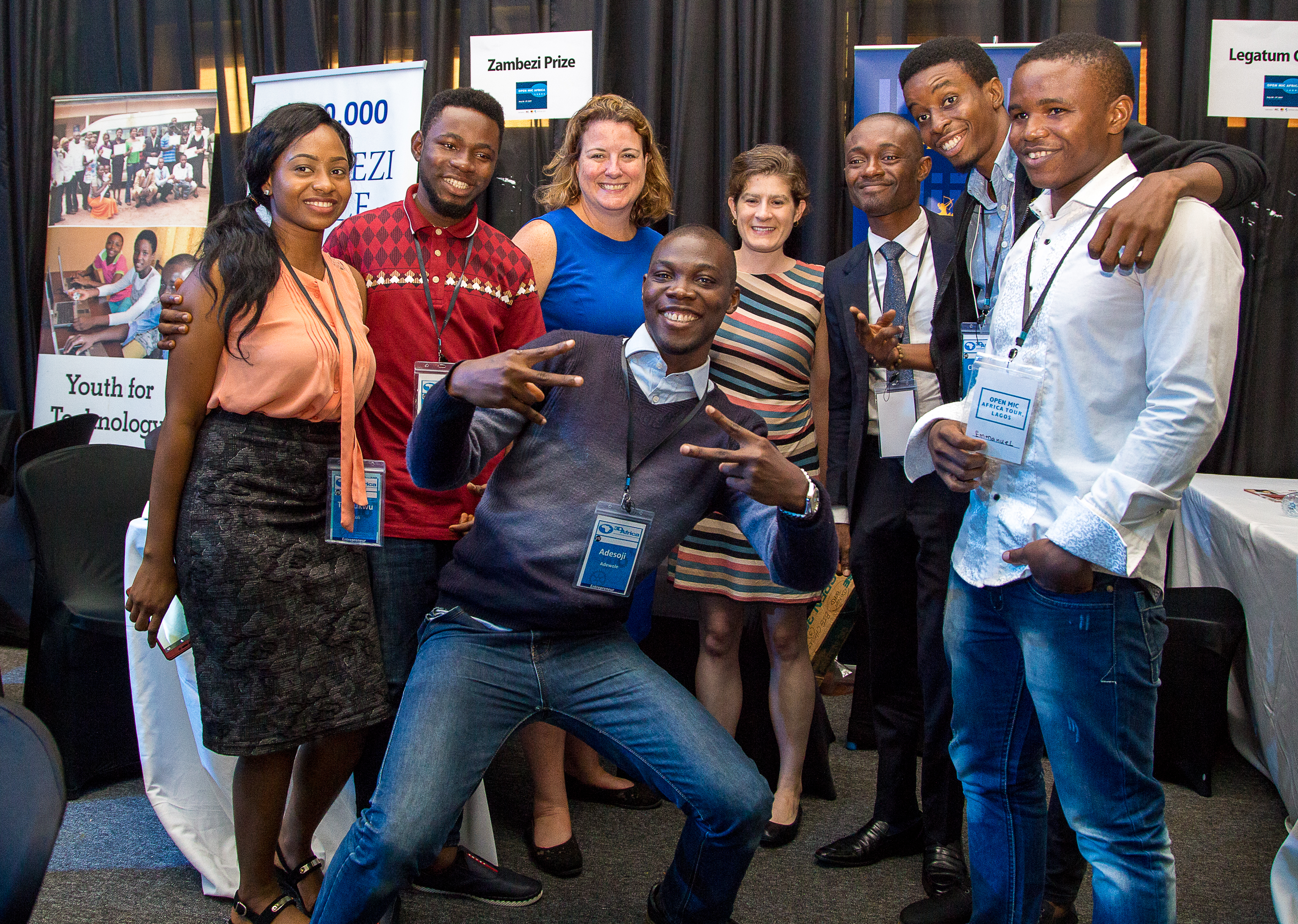
Internet for All
Half of the world, about 3.9 billion people, is still offline. Women, poor, and rural populations comprise the majority of the unconnected. At the Sustainable Development Summit in New York last September, I had the distinct pleasure of moderating a panel with the CEO of Turkcell, Kaan Terzioglu and three Information and Communications Technology (ICT) Ministers, including Minister Khan of Pakistan, Minister Nsengimana of Rwanda, and Minister Palak of Bangladesh. They each acknowledged that achieving universal, affordable internet access requires urgent attention and discussed how a multi-stakeholder approach related to their coalition is unlocking additional resources, innovations, and increasing scale. Check out the live recording of the panel here.
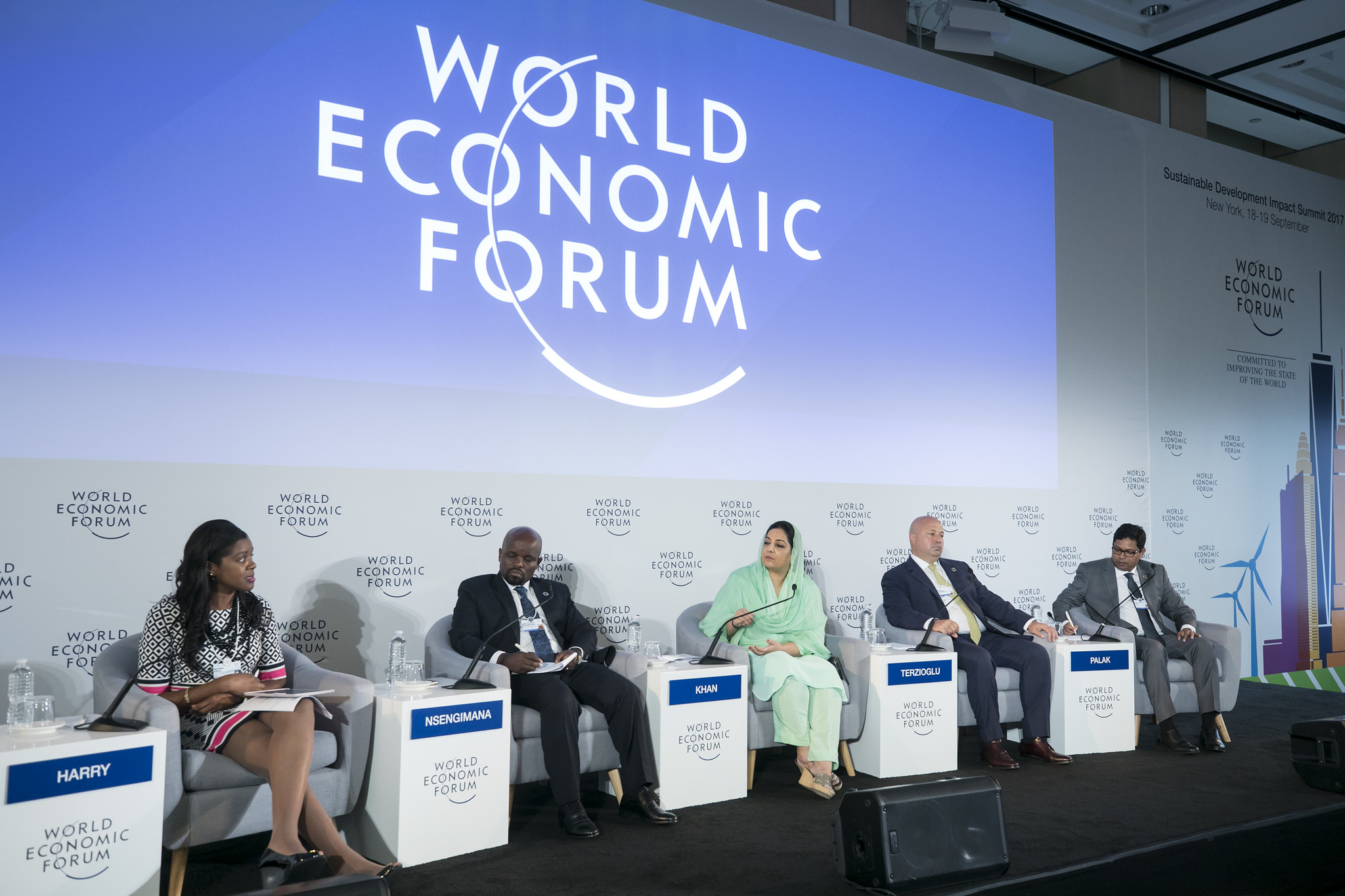
The key message that resonated across the event is that technology is not a panacea. It is not enough simply to put technology in schools or connect users to the internet. In order to unleash the full potential of youth, we need to build their skills and train teachers. No nation becomes great when their people are idle, semi-skilled or outright unskilled.
Youth, Girls and Technology
With businesses increasingly digitally and globally connected, coding is the new language for individual and economic growth. For Africa’s growth to be sustainable, young people must have the right skills for employment. Thanks to the support of SAP Africa and Google, YTF taught over 1,500 youth in Kenya and Nigeria, ages 8-17, to code using Scratch. The German Federal Ministry for Economic Cooperation and Development (BMZ), under its umbrella program eSkills4Girls, further supported YTF in launching Girls Code Nairobi, an annual coding boot camp for university-age students.
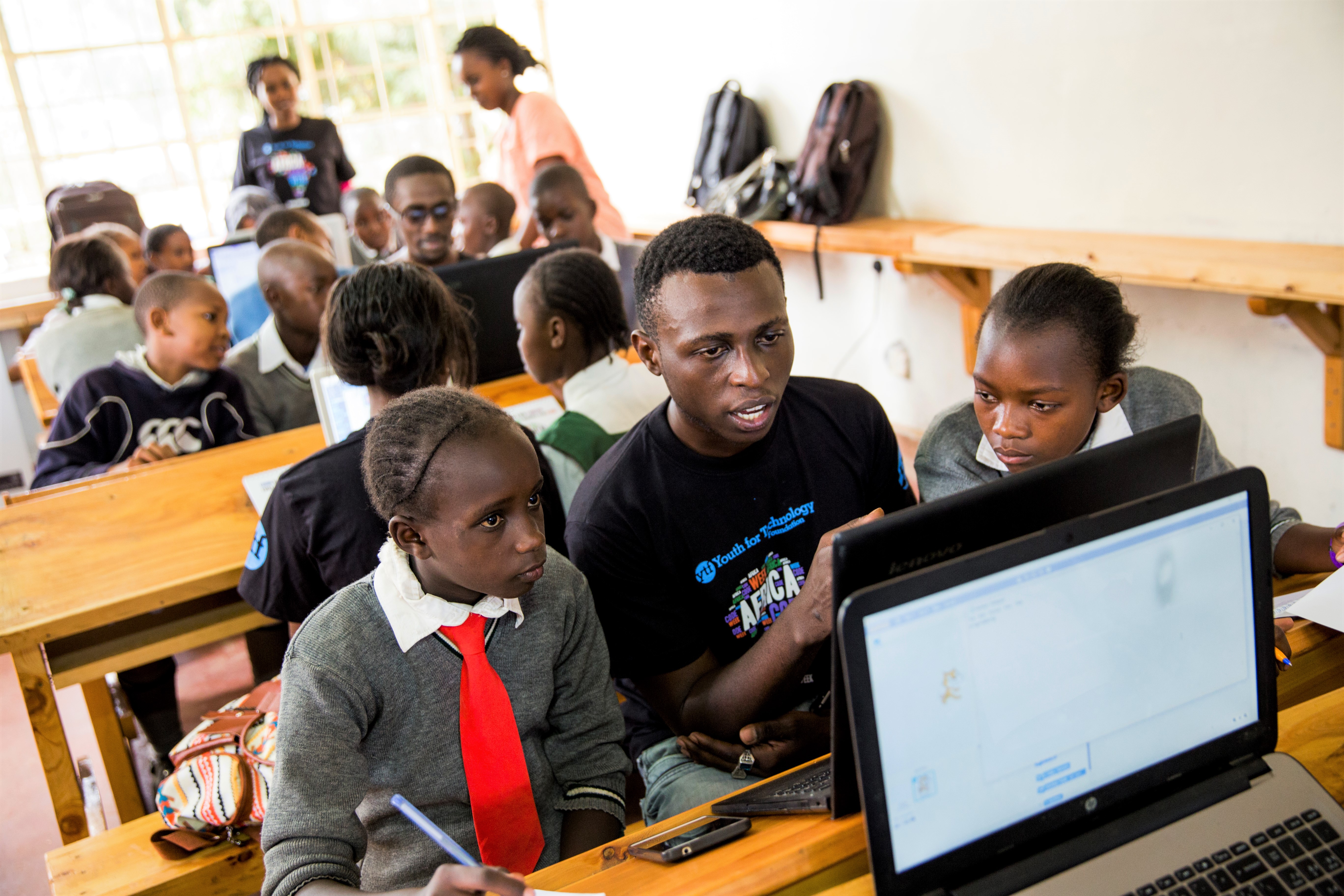
We furthered our work with gender and technology through developing meaningful partnerships with other nonprofits and the private sector. We joined MasterCard to launch Girls4Tech in Kenya and Nigeria, reaching over 100 girls. We inspired girls to identify and experiment with STEM-related career paths so they are prepared for the jobs of the 21st century.
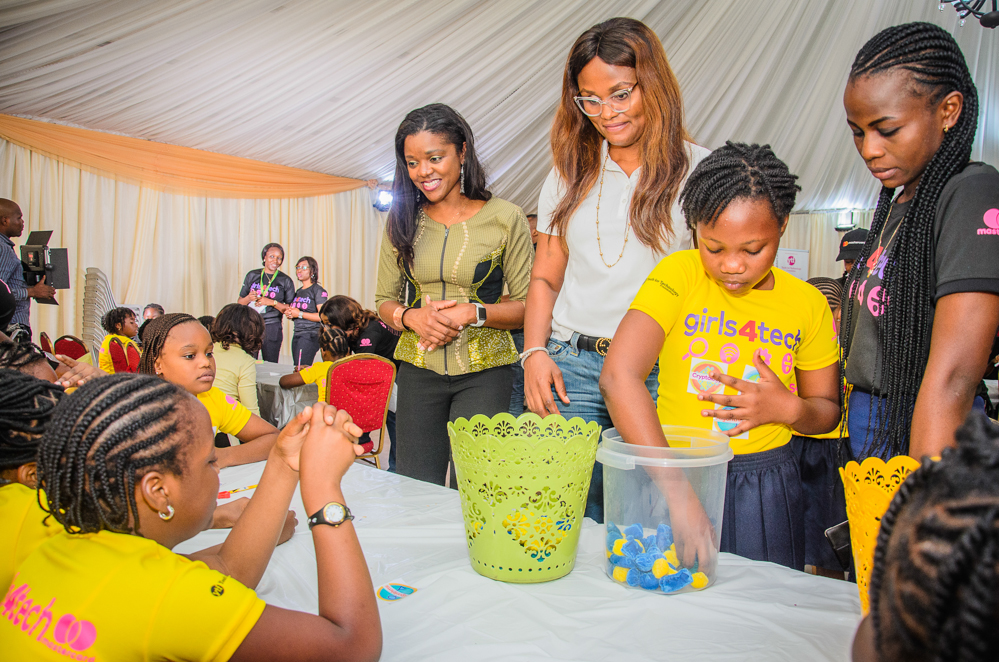
The Future of Entrepreneurship
Across the board, we continued to work with youth in the entrepreneurship space, teaching them to think past simply prototyping to actually create viable products. We supported several of our youth participants in promoting their ideas on various platforms, including the Merck Virtual Innovation Challenge and UNLEASH.
In addition to the business and financial literacy training we deliver to women entrepreneurs, we began training apprentices of these entrepreneurs. Uduak, 19, is an apprentice at Grace Ventures. Having gone through our program, she explained that she is better equipped to overcome the constraints of running a business. Uduak is confident that in the near future she will be able to work for herself.
I spoke at the Kellogg Innovation Network about entrepreneurship in Africa, highlighting many of the challenges and untapped opportunities, and sharing some of the things YTF is doing in this space, particularly for women entrepreneurs. Watch this event here.
What 2018 Will Bring
We have a few ambitious goals for 2018, a few of which include:
Developing strategic partnerships with two universities to establish engineering and prototype hubs for 3D Africa. HackforGood 2018 promises to be even more exciting, so be sure to join our mailing list.
More impact in Kenya! With a new leadership team, we are excited about our growth thus far in this space and more to come. We will bring on a handful of education partners (schools and universities) and also provide entrepreneurship and life skills training for youth.
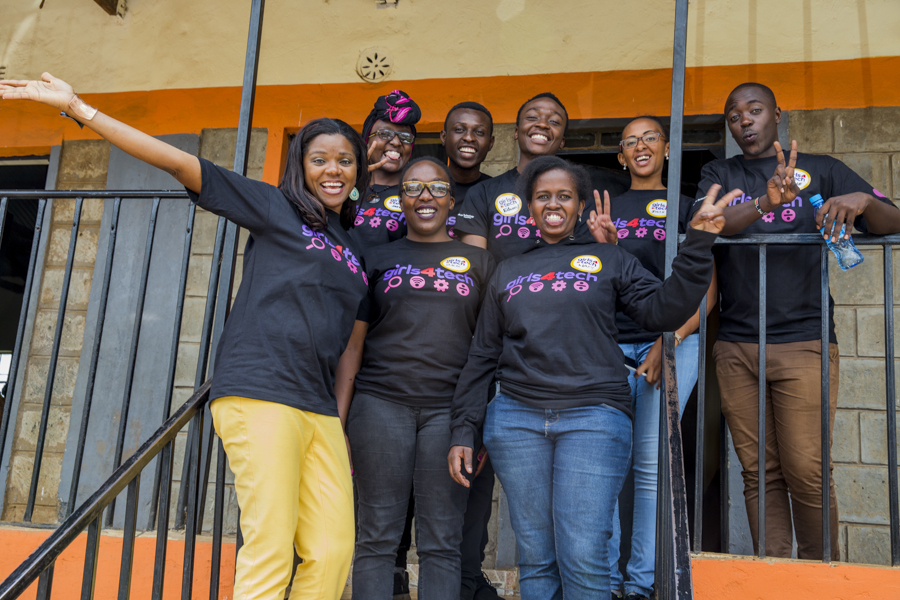
YTF will be at NASDAQ in New York in July. I will be interviewed on Facebook Live and the YTF team will ring the closing bell! If you are able to join us, we would love to have you. More details as we get closer to the date.
Health, Happiness & More Impact in 2018
Thank you for partnering with us as we work to improve the lives of students like Emmanuel, Kenzie, Rukeme and Uduak in 2017. We cannot do this work alone and your partnership and contributions are appreciated. We can’t wait to do more together in 2018.
We believe that the future belongs to the creators, innovators and people whose ideas and creativity will change our world for good. Thank you for sharing a part of this journey with us.

Njideka Harry, President and CEO
